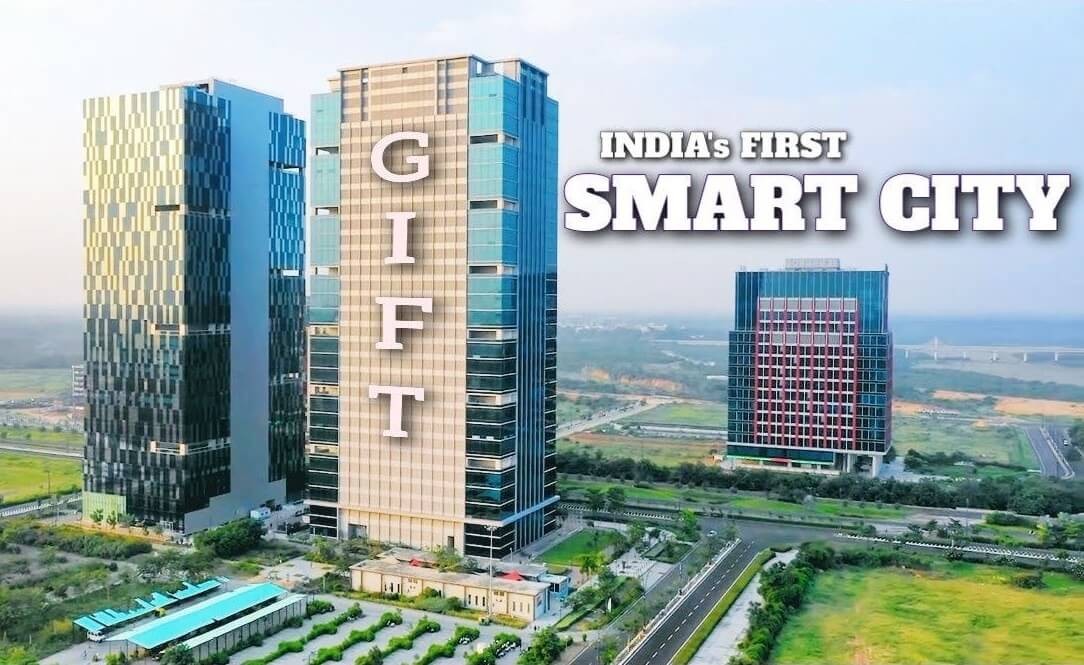
The significance of GIFT City (Gujarat International Finance Tec-City) in the context of the Indian economy is substantial, as it holds the potential to catalyze several key aspects, outlined below in greater detail:
1. Boost to the Financial Sector:
GIFT City has been meticulously conceptualized to emerge as a pivotal hub for India's financial sector. The city boasts a meticulously crafted infrastructure and cutting-edge facilities tailored to the needs of banks, insurance firms, and various other financial institutions. By providing an environment conducive to growth and innovation, GIFT City is poised to not only expand the scope of India's financial industry but also to fortify the nation's stature as an economic powerhouse. This sectoral growth translates into enhanced economic dynamism.
2. Attraction of Foreign Investment:
The strategic amalgamation of business-friendly policies, its Special Economic Zone (SEZ) status, and state-of-the-art infrastructure positions GIFT City as a magnetic center for foreign investment. The city's ecosystem is primed to allure investments from across the globe, promising the dual benefits of job creation and the stimulation of economic expansion within India. This inflow of foreign investment could serve as a major driver in the evolution of the nation's economic landscape.
3. Nurturing Innovation and Startups:
GIFT City is characterized by its proactive emphasis on innovation and entrepreneurship. This orientation has the inherent potential to foster the burgeoning growth of startups and nascent enterprises. The supportive environment crafted within the city nurtures the incubation of novel ideas, which in turn fuels the engine of innovation. As these startups flourish, they contribute not only to economic diversity but also pave the way for a wave of employment opportunities across various sectors.
4. Diminishing Reliance on External Financial Centers:
A notable aspect of GIFT City's importance lies in its potential to alleviate India's reliance on foreign financial centers like Singapore and Hong Kong. The city serves as a compelling domestic alternative, offering world-class facilities for businesses seeking to expand their operational footprint within Asia. This shift has the potential to retain significant economic activity within India's borders, which, in the long run, contributes to increased self-reliance and reduced dependency on external financial infrastructures.
5. Fortifying India's Global Economic Standing:
By meticulously developing a financial nucleus in the form of GIFT City, India is poised to bolster its stature on the global economic stage. A robust financial center of this magnitude enhances India's influence within international financial markets. As GIFT City gains recognition and prominence, it contributes to projecting India's economic strength on a global scale. The city becomes a testament to India's commitment to progressive economic practices and a symbol of its growing presence in the international economic discourse.
GIFT City's inception dates back to 2008, a time when fintech was still a relatively unfamiliar term, and Narendra Modi held the position of Chief Minister in Gujarat. The visionary concept aimed to transform this strategically positioned area into a thriving hub for global financial trade and commerce, streamlining bureaucratic hurdles and compliance procedures that often impeded progress.
The overarching goal was to establish an enticing alternative to renowned financial hubs like Dubai or Singapore. The focal points encompassed various business sectors: capital markets, offshore banking, offshore asset management, offshore insurance, IT services, ITeS/BPO services, as well as supplementary areas such as legal, accounting, research, and analytics.
To support its operations, the center was equipped with cutting-edge infrastructure, encompassing essential urban amenities and robust external connectivity. A significant responsibility involved overseeing international transactions, which the International Financial Services Centre Authority (IFSCA) diligently managed. The IFSCA's purview extended across capital markets, offshore banking, asset management, offshore insurance, and related domains. Notably, the center also provided leasing services for both ships and aircraft. Notably, the presence of two international stock exchanges in GIFT City contributed to an impressive average daily trading volume exceeding $11 billion.
Despite initial skepticism from many quarters, the vision for GIFT City persevered. A turning point emerged roughly five years ago, as consecutive Union Budgets from 2015 onwards introduced incentives for GIFT City's growth. The International Financial Services Centre, geared towards serving overseas clients involved in cross-border finance and related services, commenced operations in 2015. Building upon this foundation, the IFSC Authority emerged in 2020, unifying regulatory oversight for all international financial services and instilling confidence within the financial community.
Situated along the banks of the Sabarmati River, GIFT City is evolving into more than just a financial center. Plans include the development of residential complexes and cultural hubs, while the riverfront is poised for a transformation with the addition of cafes and restaurants. Moreover, discussions with foreign universities are underway to establish local campuses, a potential game-changer that could profoundly shape GIFT City's cultural landscape.
In summation, GIFT City's importance is multi-dimensional, ranging from its potential to elevate the financial sector, attract foreign investments, fuel innovation, offer an indigenous alternative to external financial centers, and bolster India's global economic influence. It is not merely a project; it is a transformative initiative that has the capacity to shape India's economic trajectory for years to come.